Glossary: Jondaemal
by javabeans
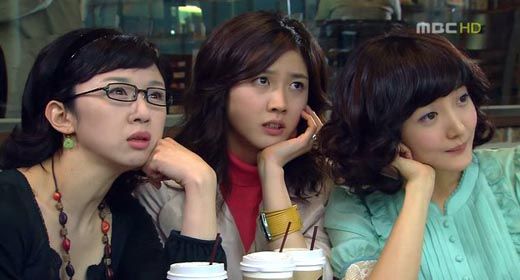
You can learn a lot about Soulmate’s main cast
from the way they chose to address one another
Next in the Dramabeans Glossary series is jondaemal, which can be described as “polite speech” or “formal speech.” (Jondae means “honorific,” while mal is the suffix for “speech.”)
Just as oppa and noona are two terms that are closely related, so are jondaemal and its casual counterpart banmal; girlfriday will follow up with the latter term. There will be some necessary overlap in our entries because they’re really two sides of the same coin, but I’ll focus more on the polite side while girlfriday will explain the familiar side.
Those of us who have been exposed to languages outside of English probably have a passing acquaintance with honorifics — you know, social hierarchies being expressed through grammar and speech patterns. In French and Spanish you’ve got tu versus vous and usted, for example.
Korean is a little more complicated, because even within the scope of jondaemal, there are differing levels of formality. However, this isn’t meant to be a grammar lesson so much as it is a casual exploration of how jondaemal is used in dramas, so I’ll try to lay off that cumbersome grammatical nitpickery. (Why, that IS the formal term, why do you ask?)
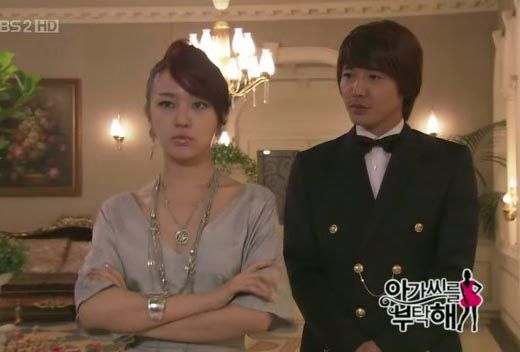
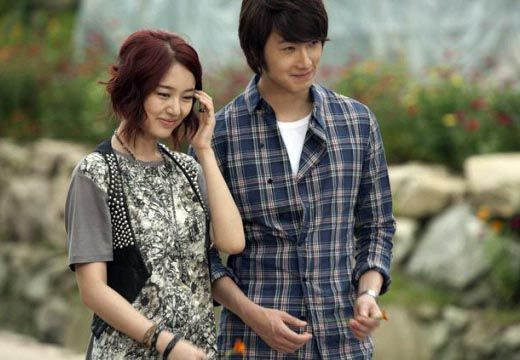
My Fair Lady’s Hae-na chooses to address
the two men in her life in two very different ways
When to use jondaemal?
Here’s the most basic way to differentiate between jondaemal and banmal: jondae is what you speak to adults, to strangers, to anybody above you, or to a social peer. Banmal, on the other hand, is used when you get past the slightly distant civility of casual acquaintance — either because of familiarity, intimacy, or even rudeness.
Jondaemal keeps a person at arm’s length; banmal brings that person closer.
In fact, a lot of things in Korean culture and language are all about figuring out what that distance is between you and another person. There’s no hard and fast rule, so it’s a matter of being sensitive to how you feel, how the other person feels, and deciding based on that how to speak to the other person. (Jondae or banmal? Unni or sunbae? Agasshi or ajumma?)
If you’re not Korean or around a lot of spoken Korean, perhaps it seems needlessly picky to make the distinction — it is definitely one of those things that is lost in translation, since we don’t have that hierarchy in English. But there’s a reason girlfriday and I squeal in certain dramas when a guy drops jondaemal and switches to banmal. Or in a different context, the switch might make us suck in our breaths and think, “Oh snap! Someone just got told!”
(Side note: This jondae/banmal distinction is one of the fascinating things I find about translations. When you go from Korean to English, you lose all of that nuance. But even more interesting is when you go from English to Korean, because then the translator is actually introducing social hierarchy when there initially wasn’t that distinction.)
When can you drop jondaemal?
If you consider jondaemal the “standard” form of speech — it’s what you learn in classes — when do you know when it’s okay to drop down to banmal?
Here’s your most important rule: When in doubt, use jondaemal. It’s better to be a little too polite than a little too impolite.
How will you know when you’re allowed to drop it? Thankfully, Koreans are pretty straightforward this way: they’ll tell you directly, “Let’s lower our speech.” Some adults may never lower their speech with each other. Others may feel an instant connection and drop their speech relatively quickly as a sign of closeness.
Also, people often drop the jondae in families, but this can be flexible. I don’t use jondae with my parents, but I have friends who do. I feel like using jondae with parents is a bit formal, but others may feel it’s more respectful.
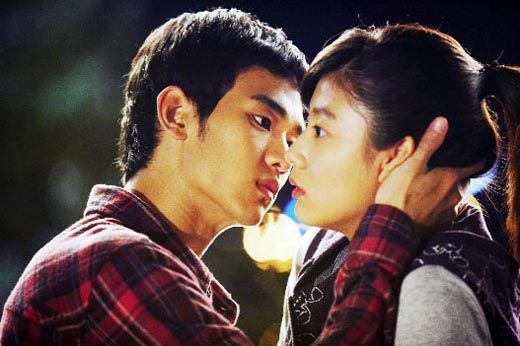
The young lovers of Will It Snow For Christmas
Jondae use among minors
Children are waived from some of the rules regarding jondaemal usage. Oh, a child should definitely use jondaemal with adults. But what about with other children?
When two children meet, most often they use banmal. However, the older the child, the more social hierarchies start to manifest. A minor (under the age of 20) may start to use jondae at school when the social ranking is clear. With kids in your class, informal banmal is perfectly appropriate, even if you’re not friends. But once you start dealing with students older than you, you might start to use jondae, even if you’re only 15.
Example: In Will It Snow For Christmas, young Ji-wan is only a first-year in high school when she meets Kang-jin, but she uses jondae speech with him. Since he’s a year older, he uses banmal with her.
Jondae as an extra layer of respect
In Cinderella’s sister, teenage Eun-jo speaks quite bluntly and rudely to everyone, regardless of age. Her stepfather Dae-sung is the first to point this out to her, and because she genuinely respects him, she makes the effort to “raise” her speech to jondae.
On the other hand, she isn’t about to give Ki-hoon the same courtesy. It’s only when he’s brought on as her tutor that he has actual power over her, and insists that she use jondae with him. He can’t force her to respect him, but he can force her to make that outward show — at least during their lessons — and she reluctantly complies. Outside of classes, however, she drops the jondae.
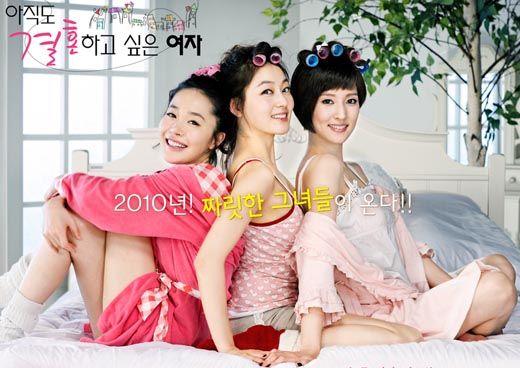
The ladies of The Woman Who Still Wants To Marry
Jondae used to maintain polite distance
Once you’ve spoken banmal with a person, you can continue using it even when you grow older.
For instance, in Soulmate Yu-jin (Sa Kang) speaks this really exaggerated, formal Korean with everyone. It’s so formal that it’s sort of like somebody going around using Shakespearean (or at least Victorian) English — it’s unusual and, in her case, very cute. She speaks that stilted formal Korean with boyfriend Dong-wook and work colleague Soo-kyung, whom she meets as adults. However, she uses banmal with her roommate Min-ae and bimbo Joo-hee because she knew them in high school.
Another example is The Woman Who Still Wants To Marry. Shin-young (Park Jin-hee) and Bu-ki (Wang Bit-na) met when they were adults, so they probably started out speaking jondaemal. However, they’ve been best friends for ten years, so now they speak banmal with each other.
In contrast, Shin-young meets Da-jung (Eom Ji-won) at age 34 and speaks jondaemal with her — until they realize they were high school classmates and then immediately revert to banmal, even though they aren’t even friends at that point. Here they drop the jondae not out of friendship but out of history.
However, when Da-jung and Bu-ki are together, they speak jondae with each other, because they’re not THAT close yet. There’s still a polite distance between them.
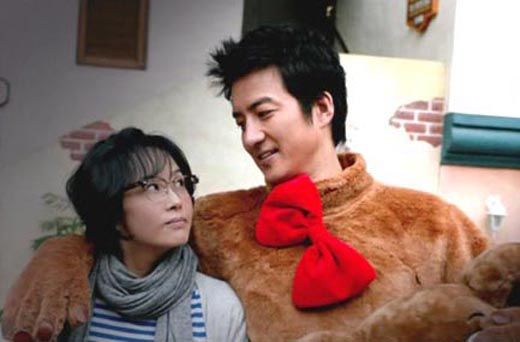
High school sweethearts reconnect in Last Scandal
In Last Scandal of My Life, ordinary Sun-hee and movie star Jae-bin were high school classmates (and sweethearts). They lost touch after graduation and haven’t seen each other in twenty years, but when they meet up as 39-year-olds, they immediately drop the jondae with each other.
On the other hand, to the outside world Sun-hee is Jae-bin’s housekeeper — his inferior in a professional and social sense — so she has to use jondae when other people are around. In this case, language offers a shield for their “secret.”
Conversely:
Take My Fair Lady. If Hae-na (Yoon Eun-hye) were a “normal” and polite young woman, she’d speak jondaemal to all her employees, even if they are her social inferiors. It’s the professional thing to do. But no, she’s a rude, bitchy heiress, so when Dong-chan (Yoon Sang-hyun) is hired as her personal butler/assistant, she drops the jondae and opts to talk to him quite rudely in banmal. (Banmal can be friendly, but if you haven’t earned that closeness, it can be rude.)
However, she wants to impress Tae-yoon (Jung Il-woo), so she uses jondae with him, because it’s more polite.
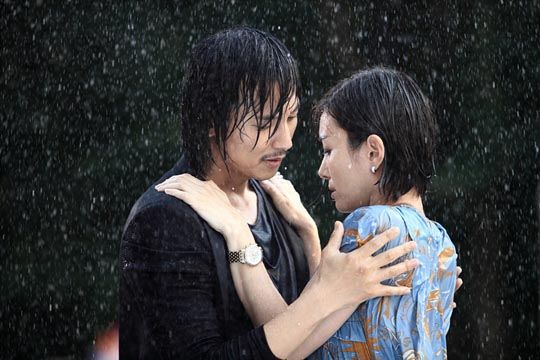
Gun-wook and Tae-ra in Bad Guy
What does this tell me about these relationships?
The reason girlfriday and I point out these things is because language is revealing. The word choices a character makes with another tell us much more than just the face value of the words: it offers hints into the characters’ psyches.
When Min-jae (Kim Bum) drops out of jondae in The Woman Who Still Wants To Marry, he’s taking an emotional step closer to Shin-young. It’s not rude in his case because they’ve established trust, and respect is therefore implicit in their relationship and doesn’t need to be reinforced with their language.
Then, take the tightly wound Tae-ra in Bad Guy. She’s battling her sexual attraction to Gun-wook and is very proper around him — stiff, even. She starts to suspect that Gun-wook is out to play her sister and her, but they don’t address this head-on, and sort of dance around the topic for a while.
However, in a recent episode she confronts him in the rain and asks what his deal is, and in that moment she drops the jondae. It’s partly to be rude, but there’s more to it: In speaking bluntly rather than skirting the topic as she usually does, her words have greater force. She drops her speech just as she gets real with him, which gives their rain-soaked moment of connection added impact.
Jae-in lowers her speech with Gun-wook as an expression of non-respect, but it ends up actually bringing them closer later on. When she’s chewing him out for lying to her, she drops the jondaemal to be purposely rude. But later on when their relationship takes on friendlier vibes, this lack of formality bridges the gap between them.
There are the fuzzy in-between gray areas, too, and Mo-nae is an example. She generally speaks jondaemal with Gun-wook because he’s much older, but she’d like for them to be closer. Every once in a while she’ll throw in a banmal sentence, as though she’s testing the waters, but then she’ll back up again and use jondae, which is “safe.”
So, essentially it all boils down to this: Jondaemal indicates respect, but also distance. When deciding which to use, you risk dropping one for the sake of the other. The question is: which is more prominent in your particular relationship?
RELATED POSTS
Tags: Bad Guy, Cinderella's Sister, My Fair Lady, Soulmate, The Woman Who Still Wants to Marry
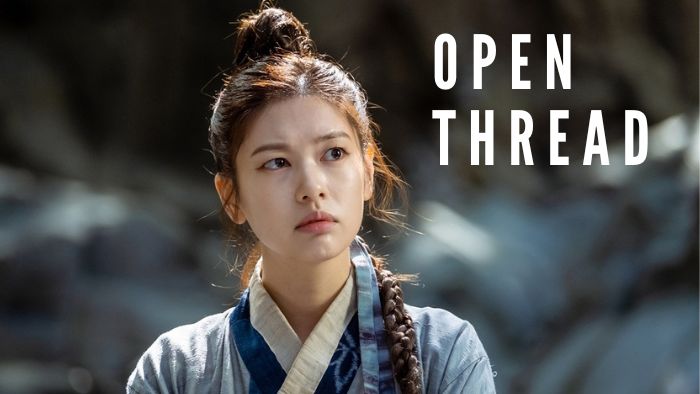
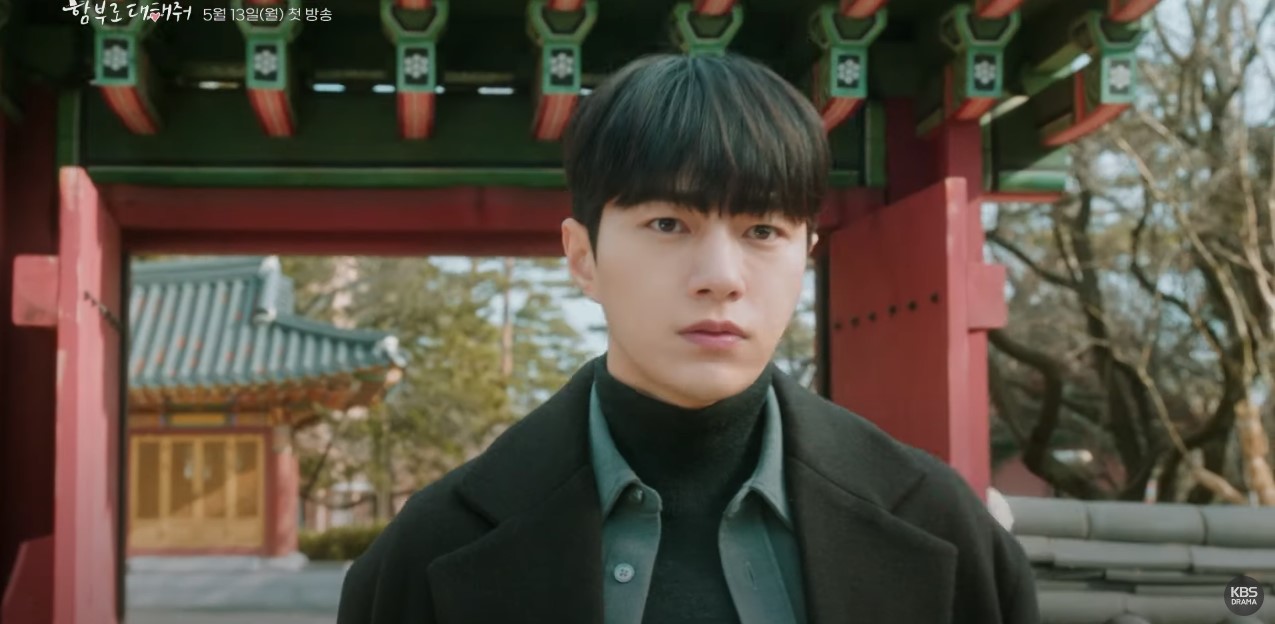
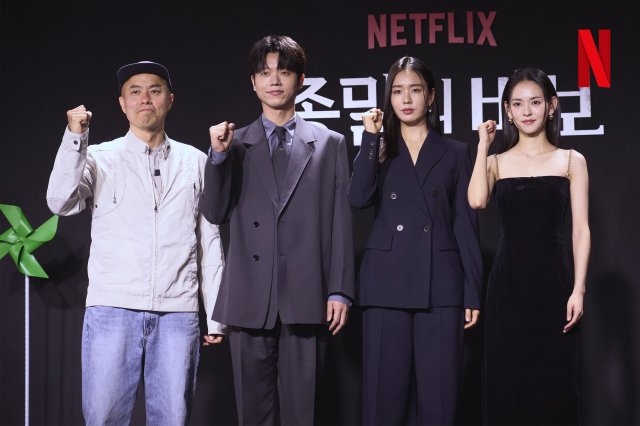
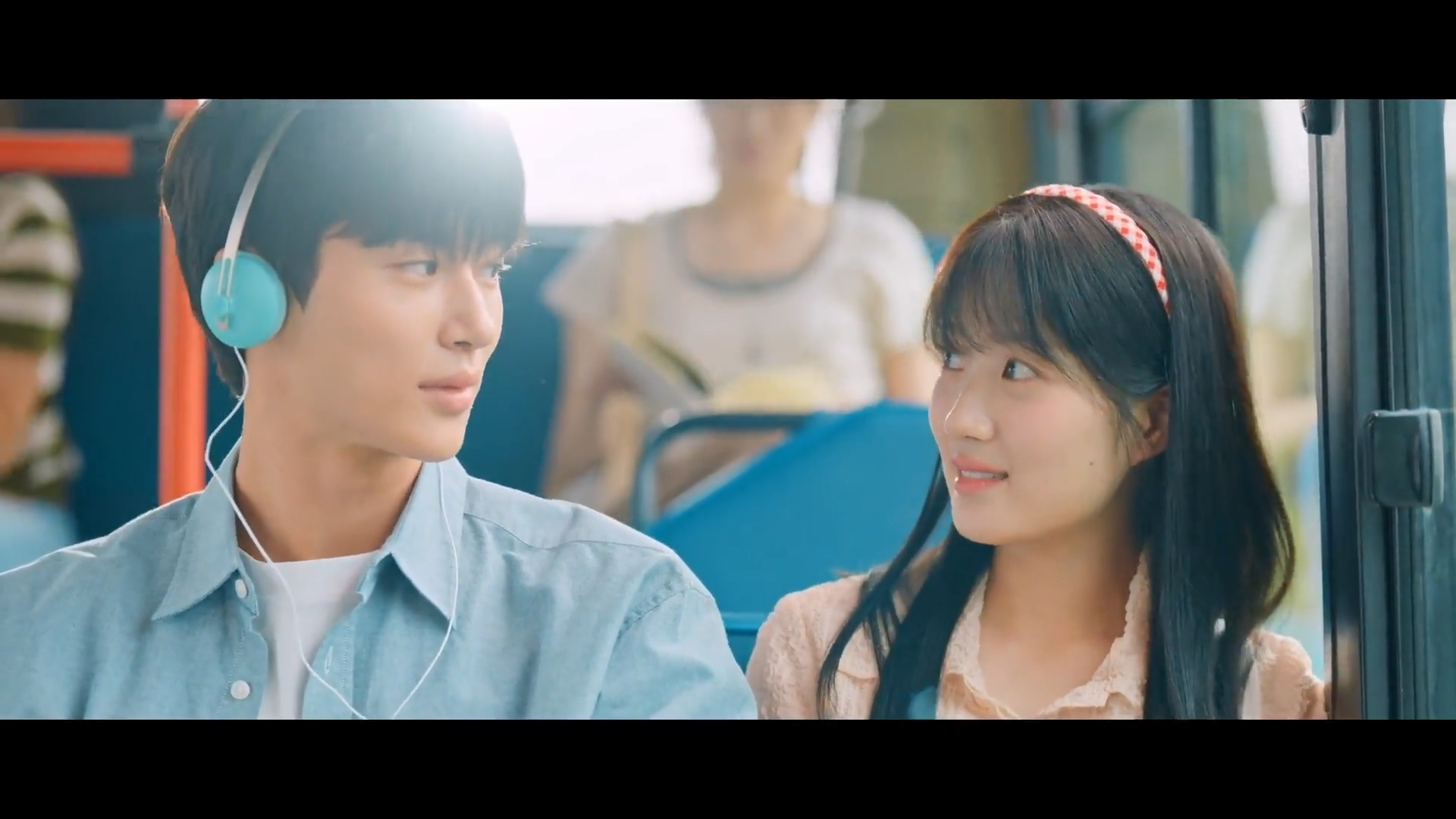

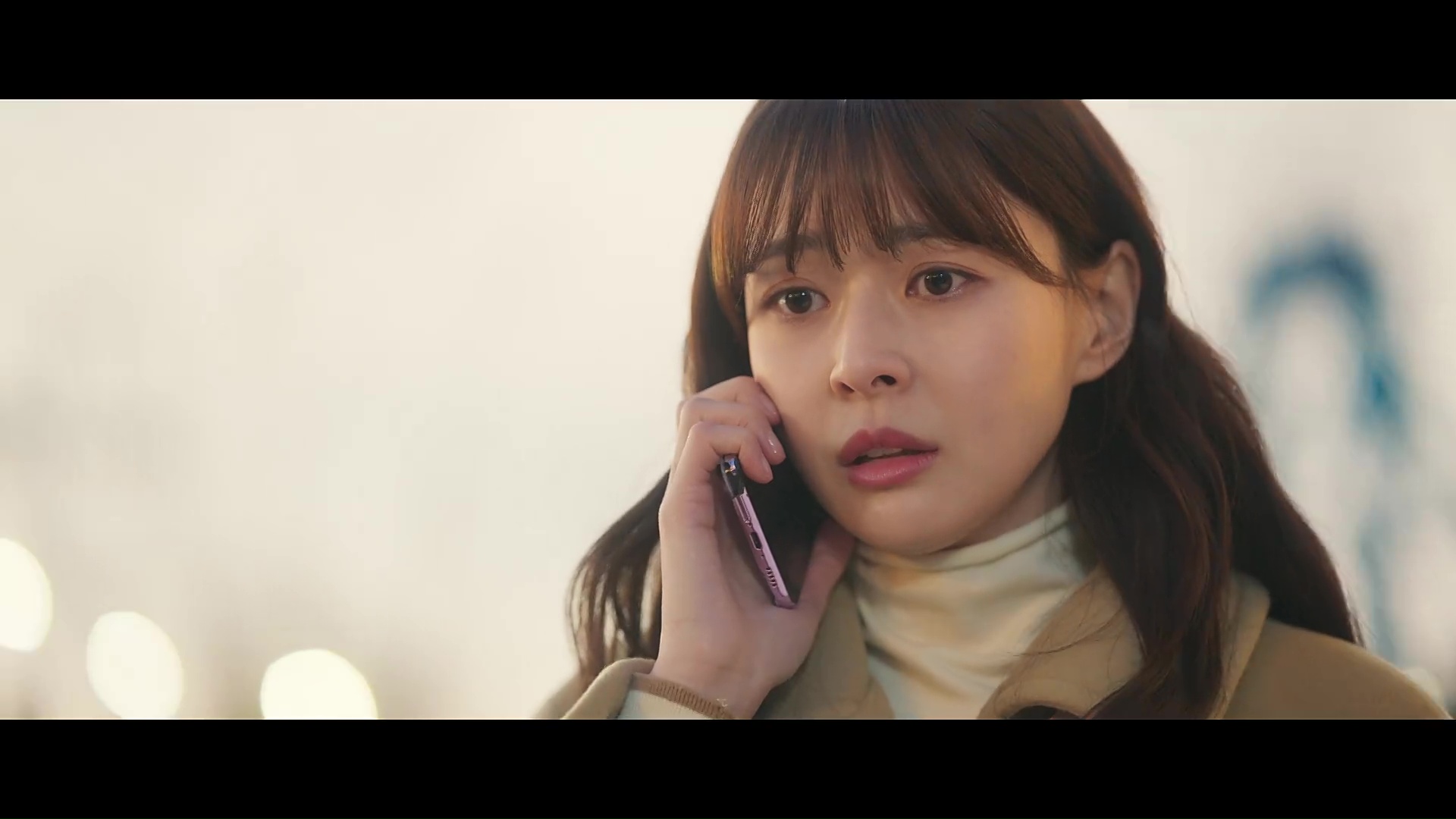
![[K-drama Treasure Hunt] Heart-fluttery bottle opening](http://d263ao8qih4miy.cloudfront.net/wp-content/uploads/2023/05/Kdrama-treasure-hunt.png)
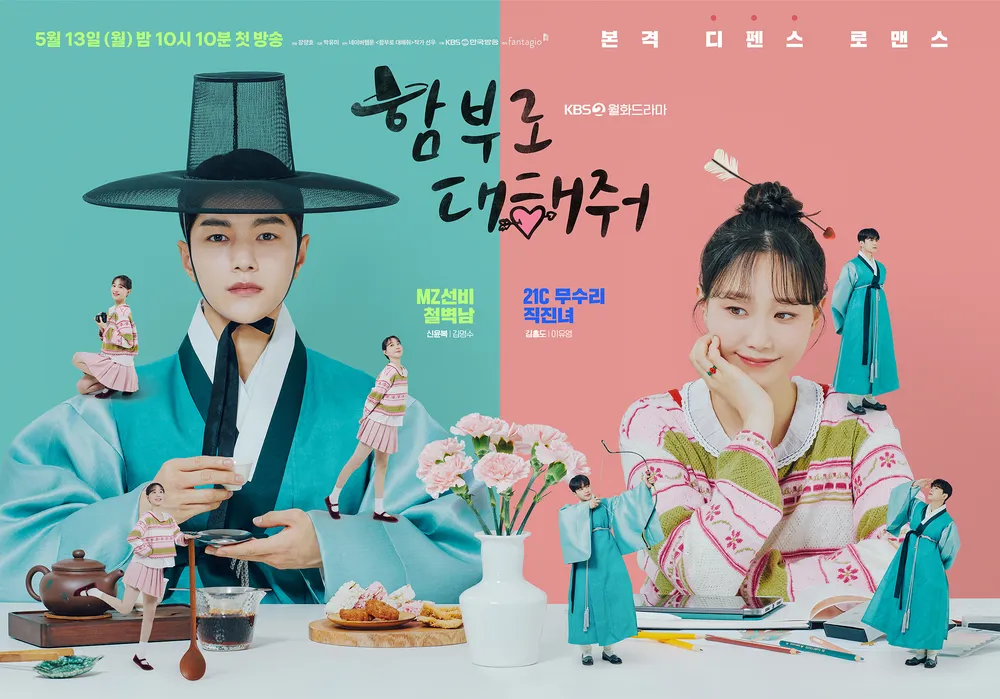

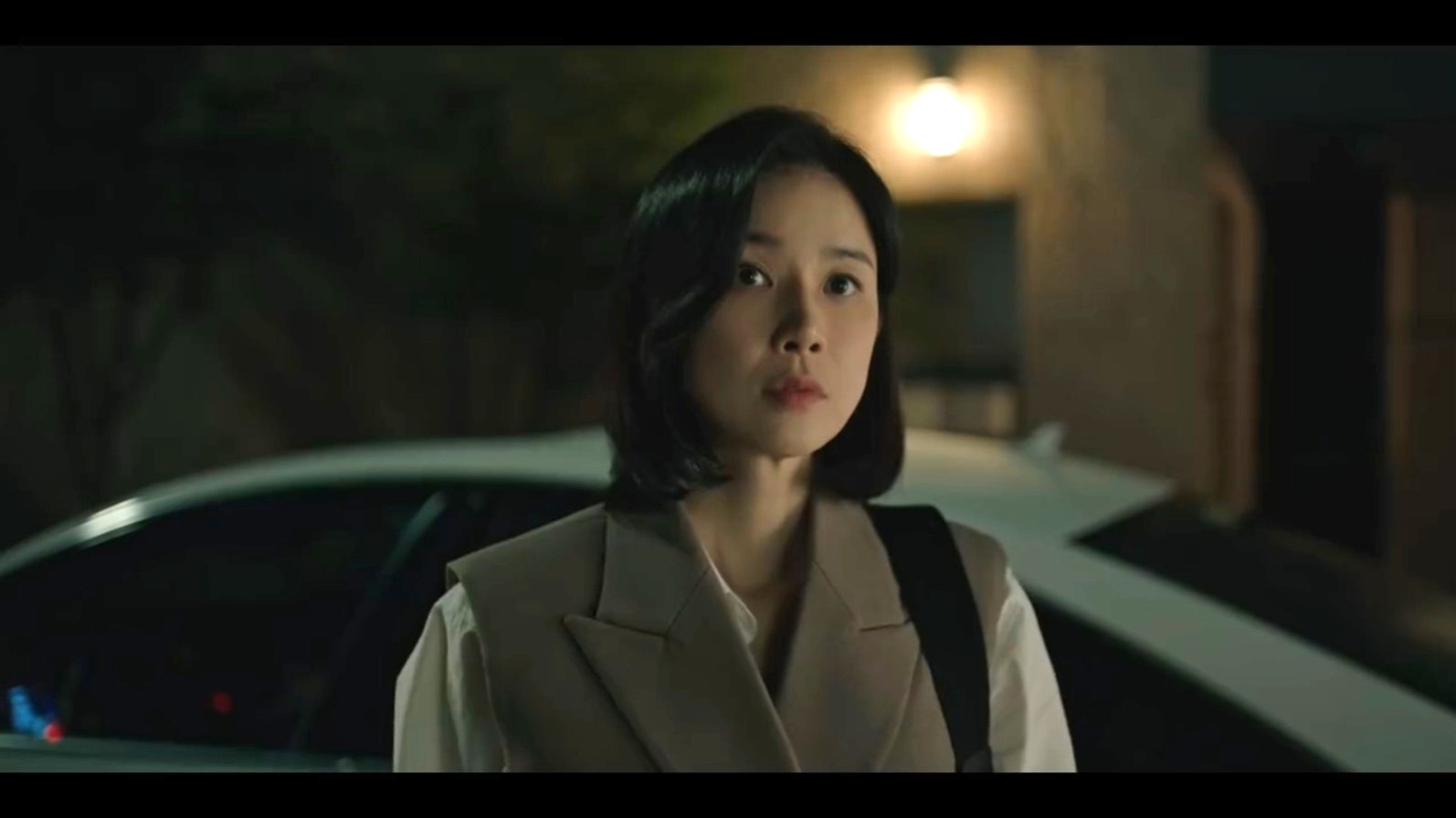
Required fields are marked *
Your email address will not be published. Required fields are marked *
51 Sere
July 13, 2010 at 6:08 AM
...and that's exactly why I'm learning Korean. :) Or why I learned English and French in order to read novels or watch movies and tvshows with "my" translations. This post is awesome, of course, and I'm so grateful you guys decided to tackle this kind of topic. I LOVE reading these posts. They turn watching dramas into a whole new experience. ^^ Thank you
Required fields are marked *
52 peanut butter
July 13, 2010 at 6:38 AM
@ 38 Your Sassy Friend
hahaha, true true, but its easier that way. think how confusing it is if you had to figure out how they are 24 or something. considering the way age works in korea, asking for the year you were born in is the safest bet. my mom is actually 2 years older or something in korea while i am only a year older in korea.
Required fields are marked *
53 Nodame
July 13, 2010 at 7:09 AM
I always loved your blog and these entries are great! I am studying Korean casually and all my language partners are younger. I like that I can use banmal and not be considered rude. I am still learning the nuances, but like others, I have watched 5 years of dramas about 70+ of them and counting.
I definitely picked up on the nuances of banmal and jondae. I did wonder why husband and wives would use jondae and now it makes sense. I would expect them to use banmal as they are close and intimate with each other. I do joke that I love using banmal but I do use jondae. Due to watching dramas, I have a mixture of knowledge of Korean. I would see how people's faces would react when they expect jondae and get banmal (ie the variety shows) etc.
Keep up the awesome work. I love this blog! This blog makes my day and the thoughtful writing and great recaps. The music choices are always wonderful too. Thanks for being my beacon for Kpop dramas and culture.
Required fields are marked *
54 Simmy
July 13, 2010 at 7:11 AM
@39 I studied Chinese, Japanese, and now Korean. To me, Chinese was the hardest actually. lol.
Java, thanks for this article, I've been watching dramas for years so I kinda guessed a little about banmal, but now I will start looking out for it. These little segments are so interesting and useful. Can't wait for banmal!
Required fields are marked *
55 Dav
July 13, 2010 at 7:13 AM
When I first started practicing my (still) very poor Korean in public, I used jondaemal with a group of kids. I don't think they ever laughed harder than they did that day. (I think I figured it was better to know the too-polite version than the too-informal version, but I also get things confused frequently, so.)
Required fields are marked *
56 m
July 13, 2010 at 7:30 AM
very interesting! i love how different languages express different things - it's interesting how in korean the social & relational differences are much more obvious whereas in english it is much more subtle. i guess it means you have to be more on your toes to figure out whether or not someone is being rude!
Required fields are marked *
57 Jane
July 13, 2010 at 7:52 AM
@39... About Chinese being easier to learn, I kinda agree, as a Chinese speaker. I'm pretty sure that Chinese did (a long time ago...) have a more distinguished formal/informal speech until recent years when it's been blurred more and many people just use the speech we now use... which is probably closer to informal than formal.
JB and GF, thanks for this blog with more intellectual discussions to help us readers further understand korean culture and dramas. I can't stand reading blogs that are so full of gossips and way too much fangirl/boy moments. A little fangirling i can take. :)
Required fields are marked *
58 Renatita
July 13, 2010 at 9:12 AM
I feel sorry for people who speaks English (native) because is more difficult for them to understand this kind of expression.
In Mexico we have that ways of speaking too, so I can understand very well the examples of friendship or respect to older people.
In addition, I think this post is very useful, but It could be better if you explain better with a phrase in the different ways, the endings, etc., because as I said, people who speaks English has more difficulties to understand it.
Thank you for the glossary!!!
Required fields are marked *
59 Jo
July 13, 2010 at 11:01 AM
Idk, this whole husband and wife thing REALLY depends. And also, perhaps you are judging it too much by your own western standards. seriously, this is Korean culture and you must hold it into perspective. Yea there might be alot of shitty things in it, but change comes slowly especially for a nation that has only just become the stronghold it is now (think about 50 or even 30 years before, Korea was pretty poor!)
And as I was saying, it really depends. my father is like 6 years older than my mother, so he uses jondaemal whilst my mother uses banmal. Its not only because of their age difference, but also because of their characters as well. My mom is like a kkangpae -_-* (gangster) and my dad is the really quiet soft-speaking type.
Required fields are marked *
60 Kapp
July 13, 2010 at 2:37 PM
Wahhh everyones here either got korean blood therefore speaks korean or in progress of learning them.. im in neither
Now i fell left out ><
-actually want to start leaning korean but am not very organised or dicipline, but definitely in my list of thing to do if only i can be more motivated.
Required fields are marked *
61 MEIKO**** ^-^
July 13, 2010 at 3:10 PM
thanks for the post! great one!
This is one of the things i really, really love about Asian culture (i think most asian countries adhere to this kind of culture), using polite speech where it is proper.
one of my culture shock when i arrived in US is how casual they would address everybody, even if one is talking to a more senior person. It was awkward for me to call my boss or my seniors by their first names! Took me awhile to stop calling them maam or sir. hahaha!
Required fields are marked *
62 refresh_daemon
July 13, 2010 at 3:20 PM
@7 sajor: To the first part of your question: it's first name + sshi for jondaemal (if you're familiar with the person; it's rude to use someone's name if you don't really know them well). For banmal it's first name + ah/yah (depending on whether the last syllable ends in a consonant or vowel).
@22 Opal: In my experience, I've almost never seen a couple address each other by name banmal-style. I think it's part of respecting the other person's name to use name+sshi. There's a sort of tender loving respect I find in speaking to someone that's close to you with jondaemal--but that really depends on the couple.
I think Koreans in general tend to avoid name usage (and second-person pronoun usage), using nicknames, titles, terms of endearment or even insults rather than using names. The only common exceptions (for banmal) I find are between close childhood friends, as they grew up using each others name in banmal, and within family (following age hierarchy rules) for the same reason.
Personally, I tend to be polite just because it's in my nature to be respectful of others. Consequently, I often use the most polite common form of jondaemal when speaking with others, dropping down to familiar jondaemal after I've got to know someone well. I use banmal almost exclusively with younger family and relatives. In one case, I met a younger distant relative of mine (5-chon or more) for the first time and since I wasn't very familiar with her, I started using familiar jondaemal out of my normal habit. After a moment of chatting with her, she complained that I was making her feel awkward by using jondaemal since I was her older cousin, so I had to work on using banmal with her.
Required fields are marked *
63 okdubu
July 13, 2010 at 4:22 PM
brb showing this to all my non korean friends
Required fields are marked *
64 korean_panda_sarang
July 13, 2010 at 4:45 PM
I use both with my parents and I don't even speak Korean with my brother, but that's not the point. I mostly use banmal but when I use Jondaemal it's not as in a stiff formal way. I use it in a light joking way. Like let's say my mom tells me to take out the trash, instead of saying Araso, I'll give her a an exaggerated bow and say, "Yeh, Algehseumnida" (I don't know if you can understand that.) Anyway, I've also realized that Jondaemal can be used in a sarcastic way too.
Required fields are marked *
65 bjharm
July 13, 2010 at 8:09 PM
this is very helpful in making me understand a little more about the why and wherefores. Jang Nara ,{yes sorry but she the one i know most about}, once said in an interview that when she first started she was blamed for using informal lang, so to look more cute..ie childlike I am guessing, but she said she has always used 'informal' speech in her family and had a hard time changing when speaking outside of the family. From this post she would have been speaking 'banmal' in her family setting, but was expected to use jondaemal when talking to those outside of it, but she was so used to banmal she kept dropping back to it.
I note these days she is actually known for always speaking slowly and carefully and always with respect for elders so I am guessing that telling off back then had a lot more importance than I had thought, being 100% western and not really understanding the difference in formal or informal
Required fields are marked *
66 ar_arguably romantic
July 13, 2010 at 9:13 PM
Thank you for your newest addition to your glossary series! I'm surprised that you had posted again so soon! I just love the layers in Korean language. I also enjoyed the post on banmal! It's nice to know if you want to be deliberately rude to someone in ways that do not involve swearing and telling them to go fug themselves- you can just switch to banmal during those moments when you should be using jondaemal!
Required fields are marked *
67 George
July 14, 2010 at 4:56 AM
Ooooo How much does this explanation reminds me of Que sera sera ?
Like there is a scene in which Eun Soo - Jang Yumi - asks Tae Joo - Eric - to use formal speech with her, 'cause 1) they broke up 2) they're now working together and it annoys her.
And at some point in one of the maaaany elevators scene, he adresses her in Jondaemal. And reverts back to banmal only few minuts later, saying that he had goosebumps all ever and it makes him sick to speak to her in formal speech.
I found it hilarious, really couldn't stop laughing, cause that was definitely being rude for Eric, but sooo true since their relation was kind of wacky since the beginning.
There is another scene in which Tae Joo and Second male lead fight over the speech they'd have to use and it's HILARIOUS, seeing them trying to impose themselves and trying to show whose the man. Haha.
Tae Joo : Why are you using banmal.
2nd lead : Cause I can.
Tae Joo : We only met a few times. How dare you? HOW OLD ARE YOU ?
2nd lead : I'm older than you so shut up.
...well that is not the correct transcription but it goes something like this. And seeing some much testosterone thrown into such a short scene. I went "aaaaaaaaaaaah"
Required fields are marked *
68 Opal
July 15, 2010 at 6:03 AM
Sassy,......, you are splendid...thanks a lot for the learning.
Required fields are marked *
69 Opal
July 15, 2010 at 6:20 AM
@32 sassy...., you're splendid.....thanks a lot for the learning..., the way you explain it is easy to chew... . Have been a korea-mania recenty so anything relates to Korea excite me
@62 refresh_daemon, your younger cousin must be flattered and impressed on the respective manner that you have. Wish I have cousins like that ^^
Required fields are marked *
70 Rovi
July 15, 2010 at 6:45 AM
Gonna ask...
How is 존대말 different from the more (very) "formal" type of speech???
Required fields are marked *
71 refresh_daemon
July 16, 2010 at 9:55 AM
70 Rovi: I think jondaemal references every kind of honorific speech that isn't banmal, including the different levels of formality and familiarity. It's an inclusive word that determines that you are being humble with your language. So, whether I say 했습니다, 했어요, or 했다, all three of these are a form of jondaemal of varying degrees of respectful speech. It's only not jondaemal if I say 했어.
On a broader note, there is both formal and informal speech, as well as polite and impolite speech. Formal/informal you (typically) use to determine speech level with strangers vs. people you know. Polite and non-polite speech based on where they stand (or might stand) in hierarchy to you. Based on this matrix, you'd think there'd only be four types of speech, but there are some more. If you watch a lot of historical dramas or attend a Korean church, you'll find the most humble level of honorific speech (always formal, always polite), which is only used with lords and heads of state or deities. And there's another form I'm aware of, but I think it's not used very much anymore ("했아오") and I don't know how it's supposed to be used since I don't use it myself.
Required fields are marked *
72 Stephanie
July 31, 2010 at 9:49 PM
I do realise that koreans and japanese have a very strong bias against women. And I see why. I cannot imagine using formal speech with my husband next time when my husband uses informal. I can slightly accept it if both sides use formal speech but it is like a weird distance between the couple yknow? But I guess if formal speech is nothing more than a habit and their relationship does not need banmal to confirm their closeness then it should be fine. still.....it is weird.
I love jondaemal in korean culture and I have learned to treat my elders well even before they have earned my trust because I have learned to do it out of respect. I also plan to give up my job at least for the first 6 years of starting a family because I don't trust guys to take care of the family well without being ashamed of the term househusband. But I really don't know how to accept the image of a submissive korean women and a unreasonable husband who orders her around like a maid.
Required fields are marked *
73 junaly
August 21, 2010 at 9:28 AM
i expected to see a mention of You're Beautiful in this....haha, i still remember how Go Mi Nam/Nyeo spoke in really polite terms. :D:D
Required fields are marked *
74 eed
August 31, 2010 at 5:52 PM
what an interesting article. thank you for sharing this information. i love how intricate a language can be. as a native French speaker myself, i can see how important it is to maintain a certain "distance" through language...
i have recently developed an addiction to k-dramas, and i have certainly gained a new appreciation for them through this article! thanks again!
Required fields are marked *
75 Tari Abraham
September 25, 2010 at 8:39 AM
this post made me want to learn korean..LOL.. I'm indonesian, and our local tv translate or dubbing kdrama without any respect to the language culture, although we also have those formal and informal. Our local tv usually translated/dubbed "oppa" with the character's name..:( thats why i prefer to watch kdrama online. i just love yr blog.
Required fields are marked *
76 L'horreurD'Esther
December 20, 2010 at 3:45 PM
Javabeans...I speak French and I'm quite offended.
In French it is not just "tu" vs. "vous". If that's what you think, then I'm afraid that you are also in translation. I find myself cringing at the way that some of my classic French movies are translated because they don't have that strict very formal, formal and informal speech. In French it's "soutenu/courant/familier".
In France you cannot...I repeat YOU CANNOT go around and use informal speech.
The French are too proud for that. Unless it's immediate family and friends, it's uncourteous and lacks dignity and respect. The verbs and subjects go together so when you "vouvoie" or "tutoie" there's a huge difference....especially with the adjectives, plurals and singular.
Even, I myself get very lost. Especially verb tenses...it gets complicated depending on the very formal, formal or informal level of speech!
I don't have the time nor energy to elaborate or detail everything BUT please do not just assume, or reduce a country's language in that way. It's sounds ignorant.
I know you don't mean too and I absolute love this blog. It's just...it made me upset when you said that...
Required fields are marked *
Hiyami
June 2, 2011 at 5:00 AM
I think Javabeans was just using them as examples as to what other languages have social hierarchies "expressed through grammar and speech patterns" and didn't go into detail as to where/when/why each is used. "In French and Spanish you’ve got 'tu' versus 'vous' and 'usted', FOR EXAMPLE."
Trying to figure out which is jondaemal and which is banmal and when to use them is confusing enough for non-korean speakers that maybe JB didn't want to add in more confusion for those poor souls trying to get to the heart of it all by explaining ANOTHER language. (Just imagine the headache...) And JB may have added the examples for those who are curious if other languages have the same/similar rules when it comes to formal/informal speech so they can look more up themselves and not derail from the main point of this topic: explaining the jondaemal used in KDramas.
And as even you stated, it gets complicated. So I'd imagine adding the complexity of explaining the use of French (even a few lines) onto explaining the ins and outs of jondaemal used in KDrama would confuse the hell out of the reader. So the French that was there wasn't there out of assumption and/or to reduce a country's language, it's there as a QUICK EXAMPLE that there are other languages out there that have the same/similar complexity when it comes to when, where and why formal/informal speech is used.
I find it best to take everything with a grain of salt so one doesn't get offended/upset about things (especially what's written in blogs).
tl;dr
They were just used as quick EXAMPLES to show readers (like me) that there ARE other languages that uses similar patterns to express social hierarchies. No offence intended.
P.s. I do apologise as I know it has been months since you posted this comment but I couldn't let it be un-replied.
Required fields are marked *
77 starryskyes
February 6, 2013 at 3:34 AM
Whoa complicated...
I don't really feel that Chinese is like this at all. But it's definitely very interesting - I would love to learn Korean :)
Required fields are marked *
78 kujaichi
July 29, 2013 at 8:06 AM
Ahh, this really makes me want to learn Korean... I'm a huge language nerd and I love stuff like this and therefore I'm sad I definitely haven't watched enough dramas to catch the changes, usually.
It also makes me think that it probably actually would be nice to have German subtitles instead of English ones (because we have two different ways to address other people as well, and while it obviously is different from the Korean system, it's still a bit closer than just "you").
Required fields are marked *
79 lily
June 14, 2014 at 7:10 PM
i really hope you can answer me this.
have you heard IU's song called my old story? im kinda confused with the term used.
the lyrics goes like
"dangsineun giokhasimnikka"
isnt dangsin a banmal term.
and suffix -nikka a jondaemal term?
can you explain?
Required fields are marked *
80 Beez
June 21, 2015 at 3:06 PM
I know I'm REALLY late with this but I have two questions:
1) If a spouse calls their spouse so-and-so's Dad, do they switch to something else if they have a second child?
2) If a person's brother, sister, parent is in a crowd or lost - do they drop the "ah"/drop the oppa/noona and doaseung (sorry about the spelling) and yell only their name?
Required fields are marked *